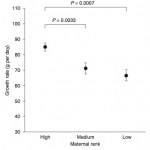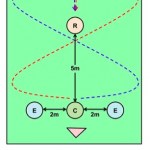SBeditors
If I had to describe the mission, the point, the raison d'etre of the entire field of psychology in just one sentence, I would say: Psychology aims to determine the relative extents to which biology and experience determine cognition and behavior." And, as you might expect, there are widely differing schools of thought. Nativists emphasize genetics, biology, and innate mechanisms. By contrast, the empiricists insist that babies are born into the world with no a priori knowledge thereof, and just a powerful statistical associative learning mechanism by which they piece together their…
Dogs are pretty smart. They can have huge vocabularies, they can infer meaning in the growls of other dogs, and they can effortlessly figure out if other dogs want to play or fight with them. But their intelligence might be limited to the social domain; indeed, while they outperform chimpanzees in social tasks, chimpanzees outperform them in many other tasks. And they might have developed their impressive social skills as merely an accident of natural and artificial selection.
Previous research has shown that dogs can use lots of different forms of human communicative signals to find food,…
Figure 1: A mother hyena with her cubs.
Early developmental experiences can have significant implications for the growth, behavior, survival, and reproductive success of an individual. In many species, one of the most important factors that affects an individual's early development is the maternal environment. However, mothers not only provide an environment for their offspring, but also half of their genes, making it difficult to separate the effects of nature and nurture when investigating developmental outcomes in the offspring. Moreover, because male mammals usually disperse from the…
In most zoos and animal parks, polar bears (ursus maritimus) attract such a disproportionate amount of attention that they are referred to in the industry as "charismatic megafauna," or in other words, "really cool animals." Perhaps it is because it is especially rare for the average zoo-goer to happen upon a polar bear in the wild, or because they live in such an inhospitable environment. Perhaps it's just because polar bears are so damn cute.
Maybe we should just blame Coca-Cola.
Whatever the reason, psychologists Michael J. Renner and and Aislinn L. Kelly of West Chester University in…
In general, the ability to attribute attention to others seems important: it allows an animal to notice the presence of other individuals (whether conspecifics, prey, or predators) as well as important locations or events by following the body orientation or eyegaze of others. We've spent a lot of time here at The Thoughtful Animal thinking about how domestication has allowed dogs to occupy a unique niche in the social lives of humans. They readily understand human communication cues such as eye-gaze and finger-pointing, and capitalize on the infant-caregiver attachment system to have their…
Regular readers of this blog know that while I think studying animal cognition, behavior, and communication is (sometimes) fun and (always) interesting, the real importance - the why should I care about this - is because by understanding animals, we can attempt to learn more about ourselves.
I've written about this before. Here are the relevant excerpts:
When human adults show complex, possibly culture-specific skills, they emerge from a set of psychological (and thus neural) mechanisms which have two properties:
(1) they evolved early in the timecourse of evolution and are shared with other…
Today for Monday Pets, we're going to go old school and talk about vision.
Vision is arguably our most (intentionally) utilized sensory system, so its pretty important to figure out how it works. And it's what David Hubel and Torsten Wiesel set out to investigate starting in the late 1950s. Ultimately, their work would get them a Nobel Prize in Physiology or Medicine, in 1981.
Basically, they took a bunch of cats, anesthetized them, and showed them patterns of light on a screen. Meanwhile, some microelectrodes were placed in various precisely determined spots in the cat's visual cortex, and…






